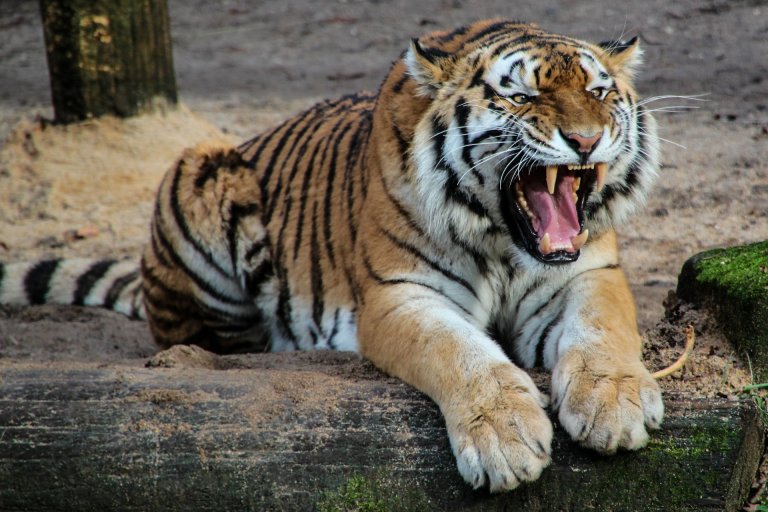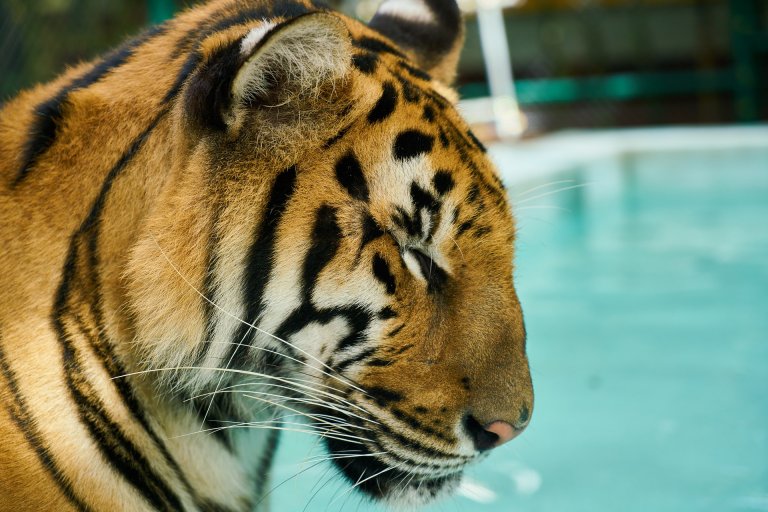The Tigers From Your Vacation Selfies Could Be on Laos Restaurant Menus
Earlier this month, a New York Times article reported that the Kings Romans Group—a company that operates a casino in the Golden Triangle Special Economic Zone in Laos—offers “expensive plates of bear paw, pangolin (an endangered scaly mammal) and sautéed tiger meat, which can be paired with tiger wine, a grain-based concoction in which the cats’ penises, bones or entire skeletons are soaked for months.” These dishes are available at the casino’s restaurants.
In addition to a casino, hotels, and a cockfighting and bullfighting ring, Kings Romans also operates a zoo, which conservationists claim is really a wildlife farm that raises animals for slaughter.

Debbie Banks, a campaign leader at the Environmental Investigation Agency in London, told The New York Times that food, jewelry, and medicine made from tigers, elephants, rhinoceroses, bears, and leopards are all sold in the Golden Triangle Special Economic Zone.
To the average tourist, the unkempt Kings Romans zoo is simply a tourist attraction that offers the chance to observe tigers and other animals. But in reality, the facility is suspected to be part of an industry that traffics animals that are illegally taken from their wild habitats and sold into the trade.

Similar operations exist in other parts of Asia. According to The New York Times, roughly 700 tigers are being held captive on these farms in Laos and thousands more are housed elsewhere in Southeast Asia. Farms in China also house between 5,000 and 6,000 tigers. Although government officials have acknowledged the problem, little has been done to close the farms.
What Do Selfies Have to Do With It?
The tigers featured in vacationers’ selfies could be the same ones slaughtered and served at Southeast Asian restaurants. According to the New York Times article, the Kings Romans zoo in Laos “plays a significant role in perpetuating the illegal wildlife trade, swapping tigers with similar operations in Thailand and illegally butchering animals for their bones, meat and parts.”
Karl Ammann, an investigative filmmaker, told The New York Times that tigers are often sold on the black market once they reach sexual maturity and can no longer be controlled. During their youth, many of them are held captive at tourist attractions where visitors pay to take selfies and play with the animals.
Thailand’s Tiger Temple, which has since closed, heavily sedated tigers so that tourists could touch and hug them or snap a selfie for a fee. The tigers’ movements were restricted, and the resident monks at the temple reportedly beat the frustrated animals when they refused to cooperate.
Although 137 tigers held captive at the Tiger Temple were seized and transferred to animal refuges around the country, thousands of other tigers around the world are still currently held in captivity and forced to perform for human entertainment.
What You Can Do
This sort of mistreatment of animals isn’t unique to Asia. In 2015 and 2016, a PETA eyewitness worked and volunteered at Dade City’s Wild Things, a Florida roadside zoo and tiger cub–breeding mill. The eyewitness discovered that animals there are treated like disposable equipment. The documentation exposed the dark, deadly side of tiger-cub photo ops.
Join more than 90,000 supporters who are taking action for these animals. Click the button below to speak out for tigers used a props, and click here to learn more about being a compassionate globetrotter.

